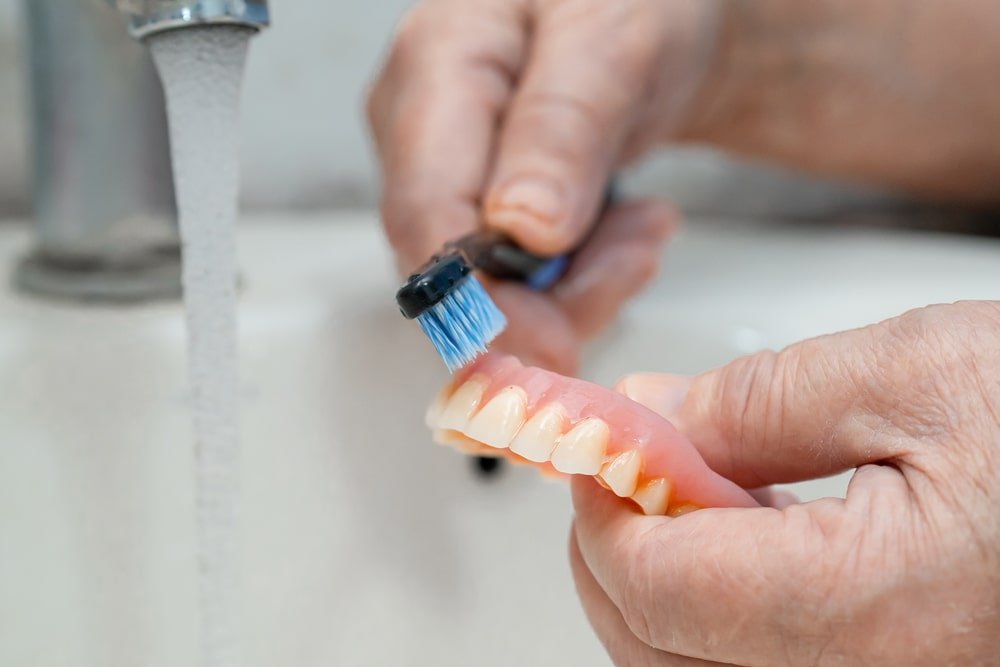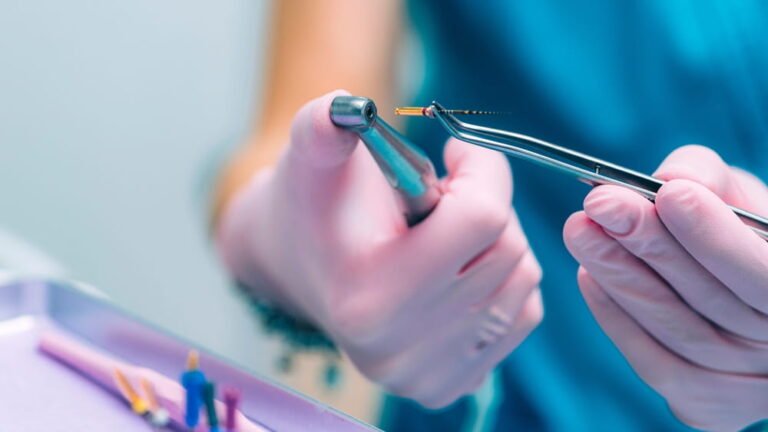Imagine this: you’ve been living with a missing tooth, and you’re finally ready for a change. You’ve seen the dazzling “before and after” photos online, heard whispers of “permanent solutions,” and you’re excited about restoring your smile and confidence. It’s a truly wonderful feeling to anticipate a complete, healthy smile again! But what happens after the procedure? What does “long-term success” truly mean? At White Tooth Dental, we believe that understanding the full picture – the realistic outcomes, the daily realities, and the lifelong commitment – is just as important as choosing the right treatment.
Think of this as your friendly, honest chat about what to really expect when embarking on your tooth replacement journey.
Your Options: A Quick Look at the Solutions That Restore Your Smile
When you’re considering replacing a missing tooth, or even several, modern dentistry offers incredible solutions.

Each has its unique strengths, and what’s perfect for one person might not be for another.
Let’s briefly introduce the main players:
Dental Implants: The Sturdy Foundation
Think of a dental implant as an artificial tooth root, typically made of titanium, that’s surgically placed into your jawbone.
Over time, this implant fuses with your bone in a process called osseointegration, creating a strong, stable foundation.
Once integrated, a connector (abutment) is attached, and then a custom-made crown, bridge, or even a full arch of teeth can be secured on top.
Why they’re unique: Implants are the only tooth replacement option that stimulates and preserves your jawbone, much like a natural tooth root. This helps prevent the bone loss that can occur when teeth are missing.
Fixed Bridges: The Classic Connectors
A fixed dental bridge “bridges” the gap left by one or more missing teeth.
It consists of artificial teeth (pontics) that are held in place by dental crowns placed on your natural teeth on either side of the gap. These supporting teeth are called “abutment teeth.”
Why they’re unique: Bridges offer a non-removable solution that feels very natural, without the need for surgery.
They can restore chewing function and aesthetics relatively quickly.
Dentures: The Removable Replacements (Partial & Complete)
Dentures are removable appliances designed to replace missing teeth and surrounding gum tissue.

- Complete dentures are used when all teeth in an arch (upper or lower) are missing.
- Partial dentures are used when some natural teeth remain, and they clasp onto existing teeth for support.
Why they’re unique: Dentures are often a more economical and less invasive option, providing a significant aesthetic and functional improvement for many people.
The Lifespan Reality Check: What “Long-Term” Really Means
This is where managing expectations truly comes into play. When people hear “tooth replacement,” they often envision a one-time fix that lasts forever.
While modern solutions are incredibly durable, they aren’t impervious to time or wear.
Understanding their typical lifespans and the factors that influence them is key to your long-term satisfaction.
Dental Implants: Lifespan Nuances
- Implant Posts (The Root): The titanium implant post itself, once integrated, can truly last a lifetime if properly cared for and if surrounding bone health is maintained.
- Implant Crowns/Prosthetics: The visible part of your implant – the crown, bridge, or denture attached to it – typically has a lifespan of 10 to 25 years, or even longer, before it may need to be repaired or replaced. Factors like the material of the crown (porcelain, zirconia), biting forces, and oral hygiene play a big role.
Fixed Bridges: Dependent on Abutment Health
- A fixed bridge generally lasts between 5 and 15 years, though with excellent care and good supporting teeth, some can last longer.
- The biggest factor in a bridge’s longevity is the health of the abutment teeth. If these natural teeth develop decay or gum disease, the entire bridge can be compromised. Regular, thorough cleaning around and under the bridge is critical.
Dentures: Adapting to Change
- Traditional dentures typically last between 5 and 10 years.
- Unlike implants, dentures don’t prevent jawbone loss. Over time, your jawbone naturally shrinks and changes shape when teeth are missing. This means your dentures will eventually become ill-fitting, loose, and uncomfortable, requiring adjustments, relines, or replacement.
- Relines (adding material to the denture base to improve fit) are often needed every 1-2 years, and new dentures are typically recommended every 5-10 years to ensure proper fit, function, and aesthetics.
The Lifespan Comparison at a Glance
| Tooth Replacement Option | Typical Lifespan | Primary Factors Influencing Longevity |
| Dental Implants | Post: Lifetime | Oral hygiene, overall health, bone density, chewing forces, habits (e.g., grinding) |
| Fixed Bridges | 5-15 years | Health of supporting abutment teeth, oral hygiene, chewing forces, material wear |
| Dentures | 5-10 years | Jawbone changes, fit degradation, daily wear and tear, breakage |
Your New Smile, Your Daily Life: The Adaptation Journey
Getting a new tooth replacement isn’t like receiving a new pair of glasses – it’s a significant change that involves an adjustment period, both physically and emotionally.
It’s perfectly normal to experience a learning curve.
Initial Discomfort & Healing
Regardless of the option chosen, some level of initial discomfort, swelling, or soreness is common immediately after the procedure.
This is your body healing! Your dentist will provide specific post-operative instructions for managing this.
Eating and Speaking: The Learning Curve
- Dentures: Expect a significant adjustment period. Learning to eat and speak naturally with dentures takes time and practice. Foods that are sticky, very hard, or require a lot of chewing can be challenging initially. You’ll need to re-learn how to bite and chew effectively, often with smaller bites and careful movements. Some patients find that certain sounds are harder to make initially.
- Fixed Bridges: Adaptation is generally quicker than with dentures. You might notice a slightly different sensation when chewing or speaking, but most people adjust quickly.
- Dental Implants: Once fully healed and restored, implants often feel the most like natural teeth. However, during the initial healing and osseointegration phase, you’ll need to follow dietary restrictions to protect the implant site.
The “Natural Feel”: It’s an Adjustment
Many patients hope their tooth replacement will feel exactly like their natural teeth.

While modern dentistry strives for seamless integration, it’s important to set a realistic expectation: it’s an adjustment, not always an instant, identical replica.
- Implants come closest to mimicking natural teeth because they are anchored in the bone.
- Bridges are fixed, which provides stability and a natural feel.
- Dentures, being removable and resting on the gums, will always have a different feel and require a greater degree of adaptation.
The “aha!” moment often comes when patients realize that while it may not be exactly like a natural tooth, the improvement in comfort, function, and confidence is profound and well worth the adaptation period.
The True Cost of a Confident Smile: It’s More Than Just the Procedure
When considering tooth replacement, it’s easy to focus solely on the initial cost.
However, a comprehensive understanding includes the long-term financial commitment that comes with maintaining your new smile.
This “total cost of ownership” perspective helps you budget effectively and avoid surprises.
Beyond the Initial Investment: Ongoing Costs
- Dental Implants: While the initial cost can be higher, implants often offer a superior long-term value due to their durability and bone-preserving benefits. However, just like natural teeth, they require regular check-ups and professional cleanings. If the crown needs replacement in 10-25 years, there will be a cost associated with that.
- Fixed Bridges: Bridges typically have a lower initial cost than implants. However, the supporting abutment teeth can be vulnerable to decay or gum disease, potentially leading to further dental work or even replacement of the entire bridge down the line. Regular, diligent oral hygiene and professional cleanings are essential to protect these supporting teeth.
- Dentures: Dentures often have the lowest initial cost. However, they come with ongoing expenses not usually associated with fixed options:
- Relines: As your jawbone changes, your dentures will need to be relined every 1-2 years to maintain a snug fit.
- Adhesives: Many denture wearers use daily adhesives.
- Cleaning Solutions: Special cleansers are required for proper denture hygiene.
- Replacements: As mentioned, dentures typically need to be replaced every 5-10 years due to wear and bone changes.
The take-away: Investing in excellent home care and consistent professional maintenance isn’t just about preserving your oral health; it’s also about protecting your financial investment in your new smile.
Good care saves money in the long run by extending the life of your replacement and preventing costly complications.
The Unsung Hero: Long-Term Care for Lasting Success
This is perhaps the most critical section for long-term satisfaction.

Just like maintaining a car, your tooth replacement needs diligent care to perform optimally and last as long as possible.
This involves both your daily habits and your partnership with your dental team.
Home Care Essentials: Your Daily Commitment
Think of your new tooth replacement like a precious investment – you wouldn’t buy a new car and never change the oil!
- For Dental Implants:
- Brush twice daily: Use a soft-bristled toothbrush or an electric toothbrush. Pay special attention to the gum line around the implant.
- Floss daily: Regular string floss is often effective, but water flossers and interdental brushes are particularly effective at cleaning around implant posts and under implant-supported bridges, reaching areas traditional floss might miss.
- Avoid abrasive toothpastes: These can scratch implant surfaces and compromise their longevity. Ask your dentist for recommendations.
- Mouthrinse: Your dentist might recommend a specific antimicrobial mouthrinse.
For Fixed Bridges:
Brush twice daily: Pay close attention to the gum line of the abutment teeth and the artificial tooth.
Floss daily, with a twist! This is where floss threaders or specialized super floss become your best friends. These tools allow you to thread floss under the pontic (the artificial tooth) and around the abutment teeth, removing plaque and food particles that can get trapped. Neglecting this step is a common reason for bridge failure due to decay on supporting teeth.
Water flossers are also highly effective for cleaning under bridges.
For Dentures:
- Remove and rinse after eating: A quick rinse helps remove food debris.
- Brush daily (your dentures, not your gums!): Use a soft-bristled denture brush and a non-abrasive denture cleaner (never regular toothpaste, which can scratch the surface and create breeding grounds for bacteria).
- Soak daily: Dentures need to be kept moist to retain their shape. Soaking them in a special denture cleaning solution overnight is ideal. Always follow the product instructions.
- Rinse thoroughly before reinserting: Remove all traces of cleaning solution.
- Brush your gums, tongue, and natural teeth (if any) before inserting dentures. This stimulates circulation and removes plaque.
Professional Maintenance: Your Dental Partnership
Regular check-ups and professional cleanings are non-negotiable for the long-term success of any tooth replacement.
- Routine Check-ups: Your dentist will monitor the health of your gums, remaining natural teeth, and the integrity of your tooth replacement.
- Specialized Cleanings: Dental hygienists use specific tools and techniques tailored to clean around implants and bridges without damaging them. For dentures, they can perform deeper cleans and check the fit.
- Monitoring for Complications:
- For implants, your dentist will monitor for signs of peri-implantitis (inflammation or infection around the implant), which can lead to bone loss if not addressed.
- For bridges, they’ll check for decay or gum disease on the abutment teeth.
- For dentures, they’ll assess the fit and look for pressure points that could cause sores or accelerate bone loss.
- Adjustments and Relines: Dentures often require periodic relines or adjustments to ensure a comfortable and healthy fit as your jawbone changes.
- X-rays: Regular X-rays help your dental team visualize the bone around your implants and the health of your abutment teeth.
Common Mistakes & How to Avoid Them:

- Skipping regular dental visits: This is perhaps the biggest pitfall. Problems that are minor and easily fixable early on can become major issues (and much more costly) if left unaddressed.
- Not using specialized cleaning tools: Just brushing isn’t enough for bridges or implants; you need to clean under and around them effectively.
- Using abrasive products on dentures/implants: Regular toothpaste is too harsh for dentures and can damage the surfaces of implant crowns.
- Ignoring discomfort or changes: If something feels “off” – pain, looseness, a change in fit, difficulty chewing – don’t wait! Contact your dentist immediately.
The Impact of Lifestyle on Longevity
Your daily habits have a direct impact on how long your tooth replacement lasts.
- Smoking: A major risk factor for implant failure and can significantly reduce the lifespan of all tooth replacements by impairing healing and blood flow to gum tissues.
- Diet: Chewing very hard or sticky foods (especially with bridges and dentures) can cause damage. A balanced diet supports overall oral health.
- Bruxism (Teeth Grinding/Clenching): This habit puts immense stress on natural teeth and artificial replacements, potentially leading to cracks, fractures, or implant complications. If you grind, your dentist may recommend a night guard.
Your Questions, Answered: A Quick FAQ for Beginners
Q1: Will my new tooth replacement feel exactly like a natural tooth?
A: While modern dental solutions come incredibly close, especially dental implants, there is always an adjustment period. Implants are anchored in your bone, making them feel the most natural. Bridges are fixed, offering great stability. Dentures, being removable, will have a different sensation. With time and practice, most people adapt very well.
Q2: How long is the recovery period after tooth replacement?
A: This varies significantly.
- Dental Implants: The initial surgical site healing takes a few weeks, but the osseointegration process (bone fusing with the implant) can take 3 to 6 months before the final crown is placed.
- Fixed Bridges: Recovery is generally quick, a few days to a week for any initial sensitivity to subside.
- Dentures: There’s an ongoing adaptation period that can last several weeks or even months as your mouth adjusts to wearing them.
Q3: Can I eat normally with my new tooth replacement?
A: Yes, largely! However, there will be an adaptation phase.
- With implants and bridges, you’ll gradually resume a normal diet once healed. Your dentist will advise on any temporary restrictions.
- With dentures, you’ll need to learn to chew differently and may need to avoid certain very hard or sticky foods. Patience and practice are key.
Q4: How often do I need to see the dentist after getting a tooth replacement?
A: Regular check-ups are crucial! Typically, this means at least twice a year, but your dentist might recommend more frequent visits, especially in the first year or if you have specific needs. These visits ensure your replacement is functioning well and help prevent complications. For solutions to dental anxiety solutions that might make these visits challenging, we offer various options.
Q5: Can my tooth replacement truly be “permanent”?
A: It’s a common question! As we discussed, the implant post can be a lifelong solution. However, the crowns, bridges, or dentures attached to them have typical lifespans due to wear and tear, or changes in your oral anatomy. With diligent care and regular professional maintenance, you can maximize their longevity and enjoy your healthy smile for many years.
Your Journey to a Confident Smile Starts Here
Understanding the journey of tooth replacement – from the initial decision to the long-term care – is empowering.
It transforms the experience from a one-time procedure into a partnership between you and your dental team, dedicated to your lasting oral health and happiness.
At White Tooth Dental, led by Dr. Kristina Pahuta, we pride ourselves on our holistic approach and patient education.
We want you to feel confident, informed, and comfortable every step of the way. Whether you’re just exploring your options or ready to take the next step, we’re here to guide you.
Our comprehensive dental services cover everything from preventative care to complex restorations.
Ready to discuss which tooth replacement option is right for your unique needs and lifestyle?
Book a consultation with White Tooth Dental today. We look forward to helping you achieve and maintain a beautiful, healthy smile for years to come.



